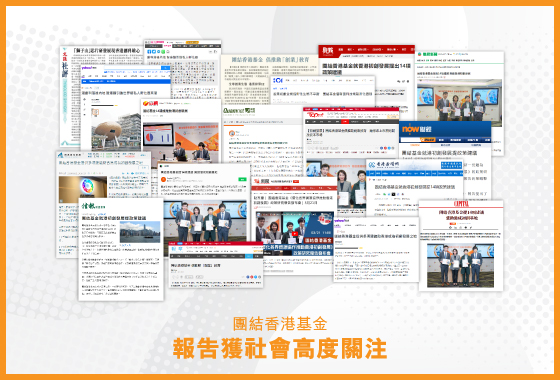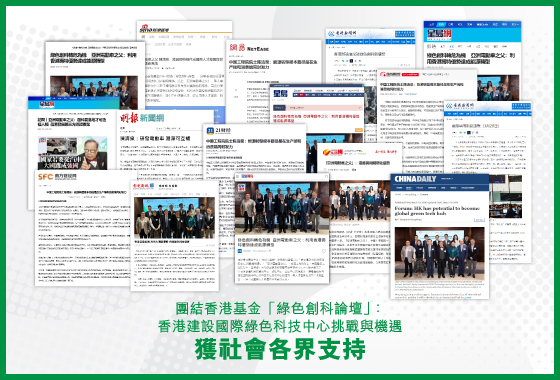Remarks on Proposed National Security Law in Hong Kong by Mr C.H. Tung, Vice Chairman of the National Committee of the Chinese People’s Political Consultative Conference
Fellow citizens of Hong Kong and friends of the media,
Welcome!
I understand the public is very concerned about the legal and enforcement mechanisms currently being considered by the National People’s Congress and granting NPC’s Standing Committee the authority to legislate for a comprehensive national security law in the Hong Kong Special Administrative Region. Today, I would like to share some thoughts with you.
The proposal by the National People’s Congress has given many people in Hong Kong a sense of hope as they see light at the end of the tunnel after a year of repeated shocks and disturbances. However, I’ve also heard many worried and distressed voices about the impending national security legislation.
In truth, people of Hong Kong can rest reassured. The National People’s Congress has made it clear in the draft legislation that it only targets heavy crimes and illegal activities. If you do not plan to engage in acts of secession, subversion, terrorism or conspiring with foreign influence in connection with Hong Kong affairs, you will have no reason to fear. I hope that everyone understands the grand purpose of national security laws is to protect the country, protect Hong Kong, and protect every ordinary family and ordinary person.
I hope that people will think objectively and rationally about the current situation of Hong Kong and think critically about the important and necessary nature of the NPC proposal.
Why do we need a legislation?
Firstly, it is to safeguard national security.
“National security” is about the state’s political power, sovereignty, unity, and territorial integrity in safeguarding its people’s well-being, its social and economic development, and its long-term national interest against any potential threat and foreign interference. According to the Constitution, Chinese citizens have an obligation to safeguard the nation’s security, integrity and national interest, and must not commit any acts that otherwise endanger the nation’s security, integrity and national interest. Hong Kong is an inalienable part under the sovereignty of China. We must understand that sovereignty is what protects a nation and its people. When sovereignty is violated, so is the safety of its people. Secession and war only serve to devastate a society, its economy and potential, and turn people into machines of foreign power. Therefore, national security is the cornerstone of stability and prosperity; it is the top priority of a nation.
Today, the world of international order and geopolitics is undergoing a change of the century. I believe we can see clearly that Hong Kong’s political landscape is shifting drastically under the influence of foreign power. Since turmoil resulting from the proposed amendments to the Fugitive Ordinance began last year, some in Hong Kong have openly called for “independence” and “self determination,” colluded with foreign forces, and begged for foreign interference in the affairs of Hong Kong. What’s more worrying is how some anti-China forces in the West have distorted the truth and openly supported anti-China radicals in Hong Kong. They have only one real purpose, and it is to contain China’s peaceful rise. We can no longer tolerate how foreign forces have conspired with radicals in Hong Kong to put at risk China’s sovereignty, its authority and the legitimacy of the Hong Kong Basic Law. Hong Kong has a constitutional duty to safeguard national security.
Secondly, it is to ensure the stability of Hong Kong.
For more than 20 years since the handover of Hong Kong, legislation for Article 23 of the Basic Law has remained incomplete, making Hong Kong a weak link in national security and an easy target for hostile foreign opportunists to disrupt public order, jeopardize the social and economic interests, and even mock Hong Kong as a “spy haven!”
In particular, the endless demonstrations and protests have led to a chaotic disruption in social order, a decline in consumption, a depressed market, and a recession. The latest unemployment rate in Hong Kong is 5.2%, a record high in more than a decade, with 200,000 unemployed. In the hardhit consumer- and tourism-related industries, the unemployment rate has soared to 9%, a 15-year high.
Most disappointing is that, against this backdrop, politicians of the opposition party continue to condone and prescribe illegal behaviour, and even threaten to filibuster any government proposals and motions for public funding if their demands are not met. Are we willing to see a non-functioning legislature, a government that cannot govern effectively, a disorderly society, and a disintegrating Hong Kong that many people have once worked so hard to build up brick by brick?
Thirdly, it is to ensure Hong Kong’s peaceful way of life.
The Chinese characters of “nation” are the interdependent words of “home” and “country.” Our “home” only comes after “country.” Without “country,” how can there be a “home?” “One Country” is the basis of “Two Systems.” To safeguard national security is to safeguard the safety of Hong Kong, the safety or our family, and the safety of ourselves.
In the past year, endless violent, illegal activities in the protest movement against the proposed amendments to the Fugitive Ordinance have caused severe damage to property, including the Legislative Council Building and police stations, and have made people live in fear, anxiety and frustration. For instance, on weekends, people have had to monitor traffic conditions and find out if roads are blocked or on fire. In public, people have had to speak carefully not to reveal their political stance. If you publicly criticize the behaviour of radical protestors, you or your family may be subject to “cyberbullying,” harassment and assault at any time. I believe Hong Kong people are fed up.
At present, Hong Kong needs to come together with all the hearts and minds, and certainly not by invoking fear. So, parents may send their children to school without worrying; people may continue to consume; shops may continue to do business; and young people may be free from instability, pursue their career and live a happy life. My fellow Hong Kongers: The decision for a legislation by the National People’s Congress can effectively prevent, stop and penalize disruptive activities and help restore social order in Hong Kong. Only under a peaceful, stable and socially harmonious society can we live and work productively and be free to pursue our dreams in life!
How should Hong Kong respond?
In ensuring our national security, it is not only a constitutional duty of the HKSAR government but also a civic duty of the Hong Kong community to commit to the responsibility, support the initiative and publicize its importance. Here, I’d like to make three suggestions.
First, we must voice support for NPC’s proposal to enact a national security law in Hong Kong.
Hong Kong is now caught in the crossfire of international politics; for the lack of an effective legal mechanism, Hong Kong has been a shortcoming in safeguarding the national security of China. In the complex international political environment, we must not allow Hong Kong to become a base of the collateral anti-China efforts. It is absolutely necessary and a responsible act for the National People’s Congress, by the power of the Constitution and within the framework of the Basic Law, to close the gap and defend the country through l legal means. Hong Kong must support and fulfil the constitutional duty in safeguarding national security.
Second, we must promote national security through education.
Hong Kong people must realize that the violence in the past year was driven by the instigation and deceit of different forces, leading to much misinformation and poor judgment. To mitigate the rise of extremism, we must strengthen our education and nurture our young people with proper thinking and values. No longer can we wait! The HKSAR government, education institutions and community at large must take immediate action to promote a better understanding of the Constitution and of the Basic Law, enhance people’s cultural and national identity, especially among young people, and build up a culture for national security.
Third, we must have full confidence in “One Country, Two Systems.”
I’m aware of rumours and false claims about how Hong Kong will lose all “democracy and freedom,” its “status as an international financial centre,” and even the death of “One Country, Two Systems” once a national security law is enacted in Hong Kong. These claims are baseless and unfounded rumours intended to invoke panic and fear.
I must reiterate that the principles of the legislative proposal by the National People’s Congress are clearly stated, including: Upholding the “One Country, Two Systems” framework; Implementing “One Country, Two Systems” with a high degree of autonomy; and Safeguarding the legal rights of Hong Kong residents.
Over the past 20-plus years since the handover, Hong Kong’s way of life and its capitalist system have remained unchanged, with more freedoms than at any time in history. Public polls show that “One Country, Two Systems” is widely supported by people of different social backgrounds and political views. As a result, Hong Kong maintains a competitive edge with its economy, livelihood, political system, freedoms, rule of law, participation in international affairs.
The legislative proposal of the National People’s Congress has undergone meticulous review and careful consideration by the Chinese Central Government. It will not affect the freedoms of speech, media, academics, religion, demonstration, association and assembly guaranteed by the Basic Law. In fact, safeguarding national security is the most effective way to maintain the viability of “One Country, two Systems.”
We must be confident in the implementation of “One Country, Two Systems,” and we must be even more confident in the development of our nation! Today, China is the world’s leading industrial power and largest goods-trading nation, improving the living standard of 1.4 billion people. Today, China is actively involved in combating global climate change and in UN peacekeeping missions; it is playing a key role in building a “community of shared future for mankind.” In fighting the coronavirus, China has won a battle by containing the spread, buying precious time for the global community, and providing different countries with medical supplies and experiences. Today, the people of China are more confident and more capable about reviving the prized Chinese culture than any period in history. Today, China is undergoing a tremendous change. As long as Hong Kong can treasure the opportunity, come to a comprehensive understanding of the Mainland and take advantage of “One country, Two Systems,” I believe Hong Kong will continue to thrive and shine as brightly as ever as the glowing “Pearl of the Orient.”
In the past year, Hong Kong has been seriously ill, but we cannot avoid looking for a remedy; the legal parameter of a national security law will only provide Hong Kong with a solution to the current dilemma, instead of harming Hong Kong. Safeguarding our national security in Hong Kong is in the best interest of 7.5 million Hong Kong citizens and 1.4 billion Chinese people, and is in the common interest of the international community for shared development. My fellow citizens, China values and cherishes Hong Kong. Now is time for us to demonstrate our will to uphold “One Country, Two Systems,” protect our national sovereignty, and contribute to Hong Kong’s long-term stability and prosperity. I’m sure people who love Hong Kong will live up to the expectation!
Thank you!




